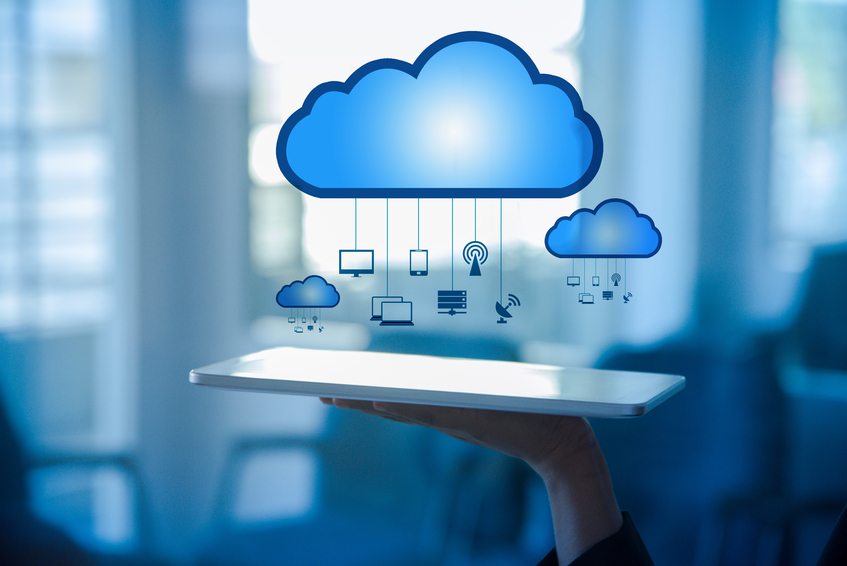

We hear a lot about companies moving their data to the cloud today and the hotel industry is not immune to this seemingly new trend. However, this is not the first time a technology has drastically changed the way industries operate certain departments.
In the late 1980s, every industry including the hotel industry started using MS Excel when the word spread that this spreadsheet could do magic i.e. complex calculations within the blink of an eye. A few years later, the stand-alone PMS (Property Management Systems) were launched. Unlike Excel that was limited and not tailor-made for the hotelier, PMS is a system that facilitates the management of properties, including maintenance & accounting all through a single software. They replaced the inefficient paper-based methods to operate the property with a client/server configuration.
Back then, the love for paper from managers and employees created a resistance to move to this highly efficient system. Eventually the resistance crumbled and hotels started to use Property Management Systems, which back then also required investment in servers and an associated operation cost in the form of AMC. The Property Management Systems started to take a primary role in how hotels went about their business.
Fast forward 30 years, the battle is not between paper in combination with excel and traditional stand-alone PMS anyymore. Rather, we have a standoff between stand-alone PMS and cloud PMS (Saas). Don't worry if you are not familiar about SaaS. We will get to that later. While the cloud Property Management Systems have eliminated the need for heavy capital IT cost or operational cost, there is still a slight resistance to move to the cloud. Let us look at both the upsides and downsides of migrating to cloud:
UPSIDES:
1. Access From Anywhere:
It doesn't matter if the hotel's manager is on leave or the executive director is overseas. They still can access the hotel's cloud PMS if they have a working internet connection. This allows them to check the status of hotel, generate reports, create tax worksheets, etc from anywhere. The benefits don't stop there. If your receptionist has to welcome a VIP guest and make a check-in while walking them to their suite/room, it is totally possible without making them wait in the lobby as most cloud PMS work seamlessly on mobile devices and tablets and operations can be done on the move.
2. Reduces IT Capital and Operations Cost:
With a cloud PMS, there is no need to maintain an internal server (unless the hotel stores data backups manually in a local server but most cloud PMS providers will do this for their customers at their end). In addition, you don't have to pay for a static IP, server manager costs and the extras.
3. Hassle-Free Updates:
Platform, system and software updates could be time consuming when you use a traditional PMS. This is where a cloud PMS would offer a significant upside. The platform and the software will be managed by the cloud PMS provider. After all, the companies offering cloud PMS charge hotels on a subscription model for exactly this purpose. Now you know why is is called 'SaaS' - Software as a Service.
4. Easy to use & Better Customer Experience:
Most cloud PMS have an easy to use interface. Tt won't take more than a minute to perform check-ins, take service or house keeping requests, or perform checkouts. It is safe to say that most cloud PMS systems enable hoteliers to take care of the needs of guests in a timely manner.
5. Quick Resolution of issues:
Multi-tenancy: this technical jargon refers to systems that can be used by multiple clients. Multi-tenancy would be true for the cloud PMS sold on a subscription basis (SaaS). In other words, the cloud PMS your hotel used would also be getting used by multiple tenants i.e. other hotels. Unlike the traditional PMS, in a cloud PMS, when there is a minor performance issue or a bug, it will be reported by one of the hotels using the cloud PMS and the issue will be resolved for all of the hotels using the system, thanks to multi-tenancy.
DOWNSIDES or MISUNDERSTANDINGS or CHALLENGES:
1. Bad/No Internet connectivity:
While it is difficult to imagine life without the internet, we still may have to consider the possibility of what if the hotel's internet connectivity fails. This is a highly unlikely scenario but let us still assume it happens. If the hotel's internet connectivity is gone, the first assumption we all make is that we will NOT be able to connect to the cloud PMS. This is a deal breaker stopping hotels from going for the cloud PMS but wait a minute, are we forgetting some thing? Most cloud PMS can be accessed by any device including mobiles and tablets with any internet connection, which includes mobile data. This means that the hotel's staff won't be needing the hotel's corporate broadband plan to connect to their cloud PMS and manage the operations. Even cheap portable internet devices that we use in our daily life such as hotpots, mobile data, dongles, etc. can be used to connect to the cloud PMS until the hotel's internet service provider sorts out their issue.
2. Data Ownership:
Most cloud PMS vendors let the hotel own their data and adhere to strict privacy policies. It is important to make sure the hotel can get the data back when they decide to stop using their current system and migrate to another system.
WHAT TO CONSIDER WHEN GOING FOR A CLOUD PMS:
Apart from the general specifics and challenges that hotels consider such as budget, features and data ownership/transfer conditions, there are a few more important specifics to consider:
1. Uptime:
It is important to know how much time your PMS vendor guarantees the system will be online in a year. When they promise 99% uptime, you are safe and most cloud PMS vendors offer exactly that!
2. Customer Support:
Check if the PMS provider offers customer support. If they do, what channels are they available in. For example, the channels may include a ticketing system, email and phone. Ask them important questions such as the time of their availability and the average time taken to resolve an issue. The customer support requirement of your hotel must match with what the cloud PMS provider has to offer. A cloud PMS provider may offer 24/7 support services and their resolution time may be a week while another provider may offer support services only during business hours and may resolve issues in a matter of hours.
3. Minor Modifications to suit your work flow:
While most cloud PMS vendors will out rightly refuse this, there are companies that would incorporate your workflow into their PMS. Before choosing the cloud PMS, check with the vendor on what customizations are allowed.

Deepak founded VizConn in 2011 at the age of 17 and currently serves as the Principal Consultant, leading the charge on CMS and AI adoption for clients across APAC, EU, and NA regions. Let us know and we will pass it on to him. He responds to most questions via email.